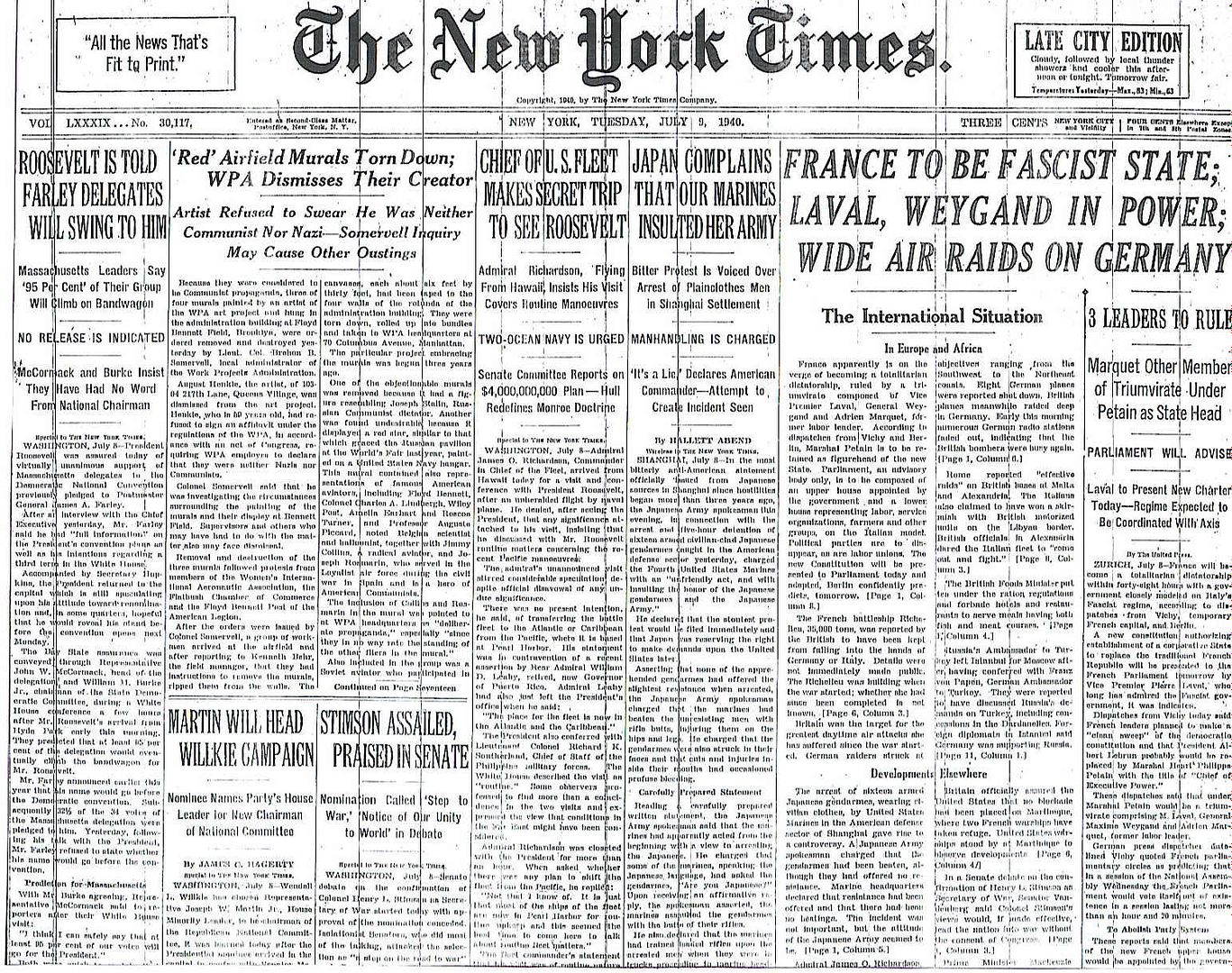
Posted on 07/09/2010 5:51:35 AM PDT by Homer_J_Simpson

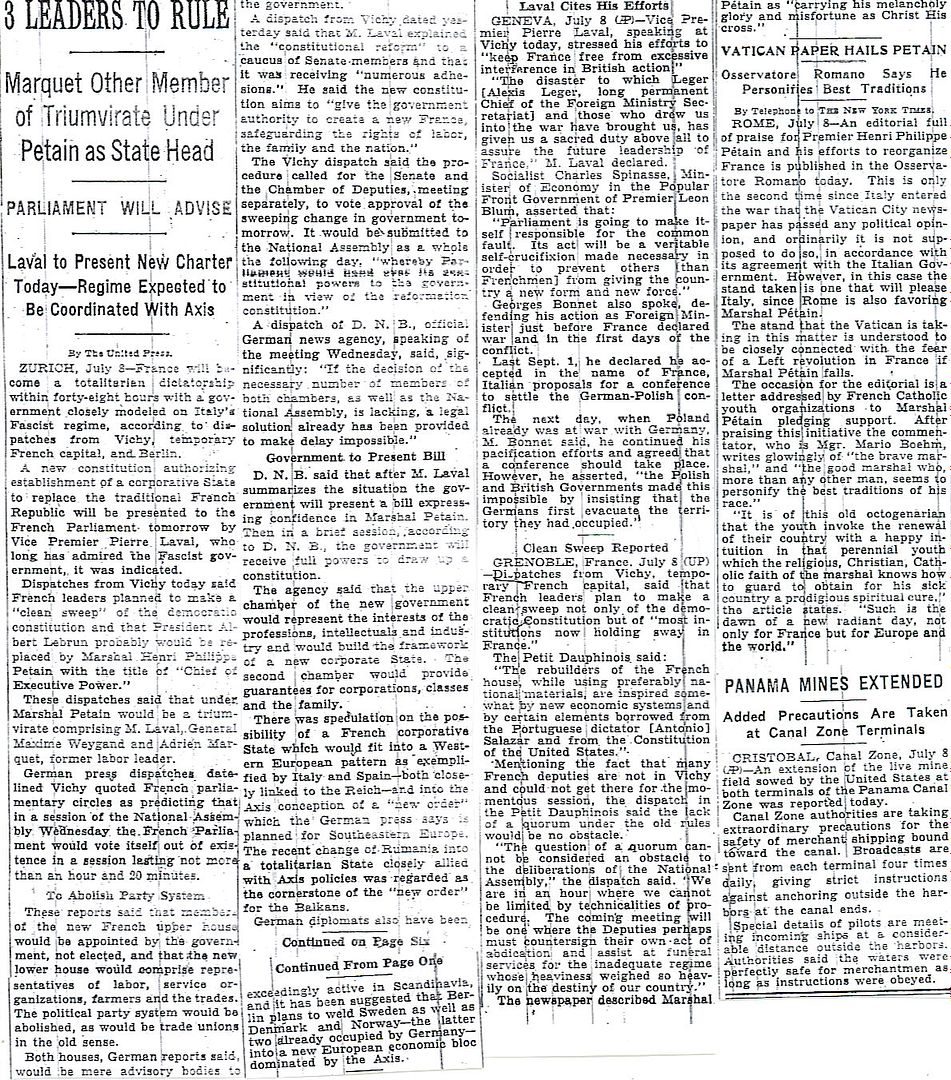
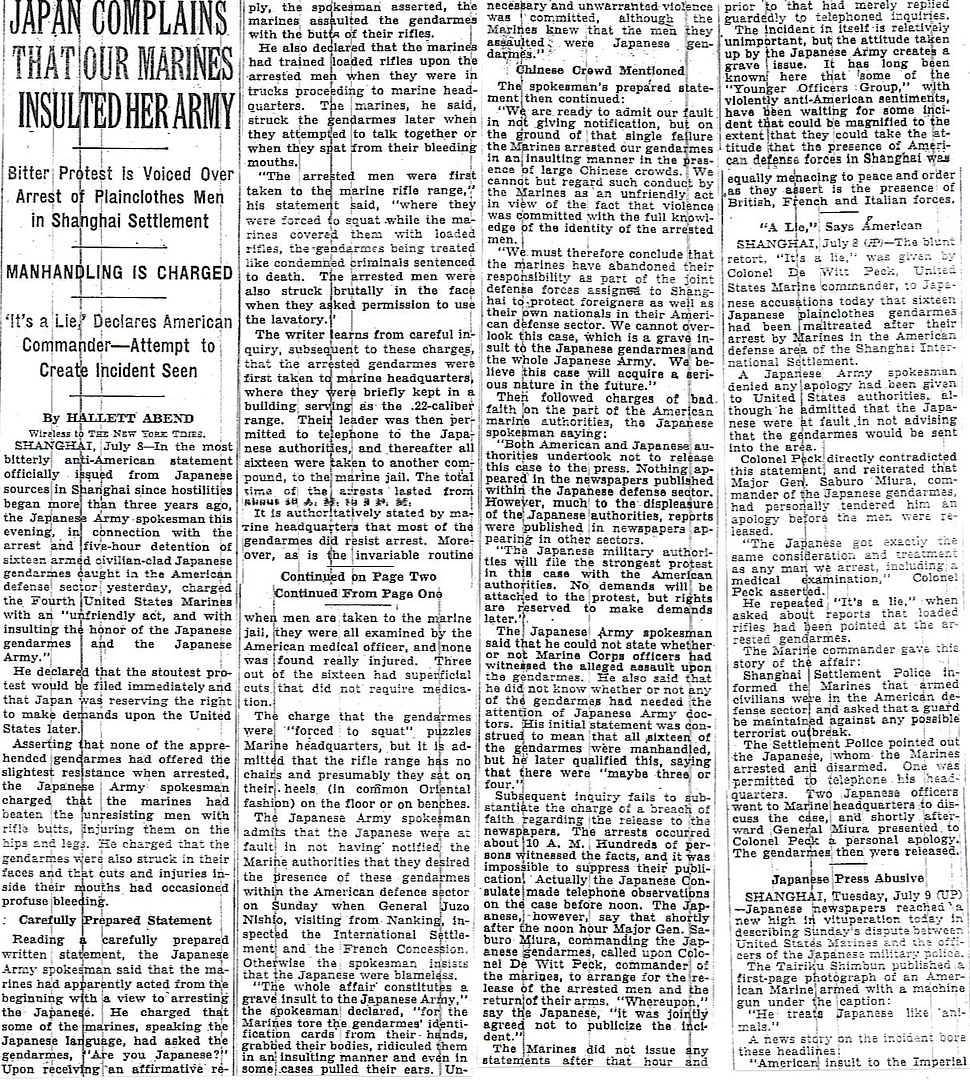
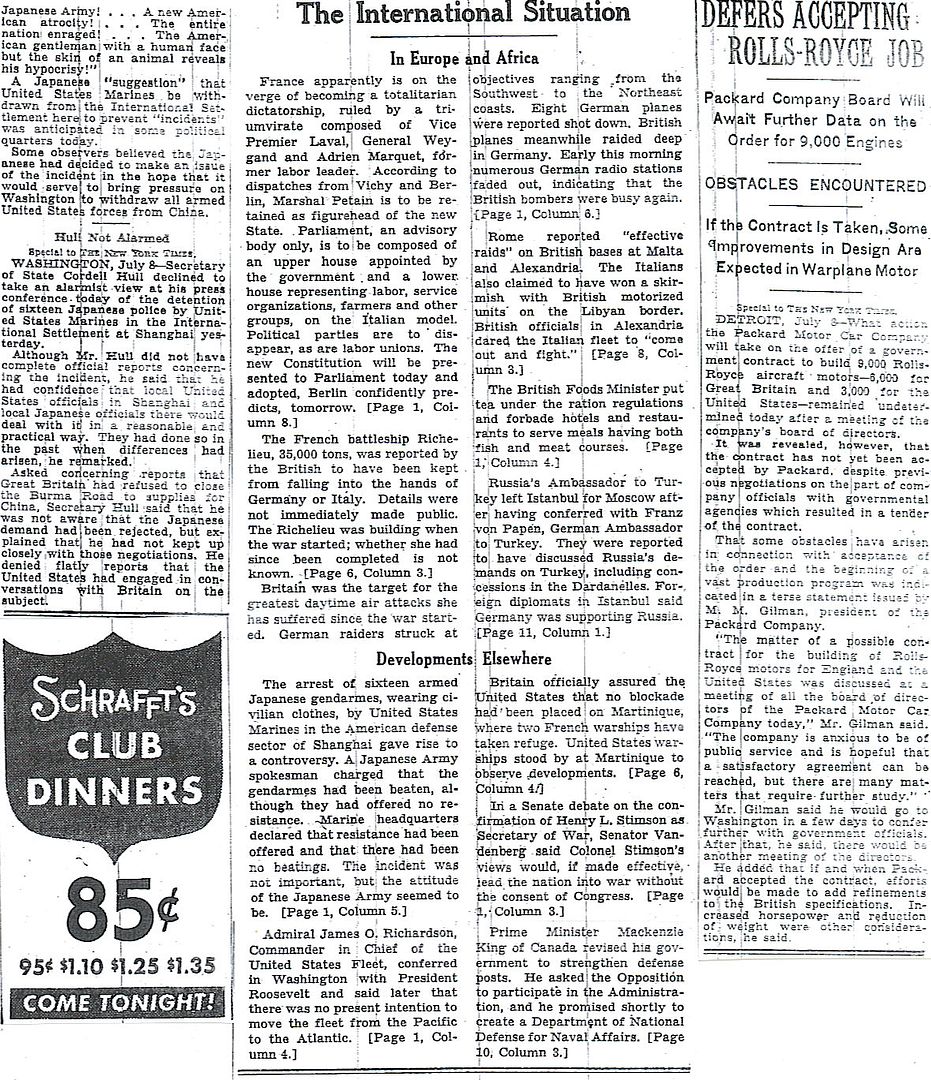
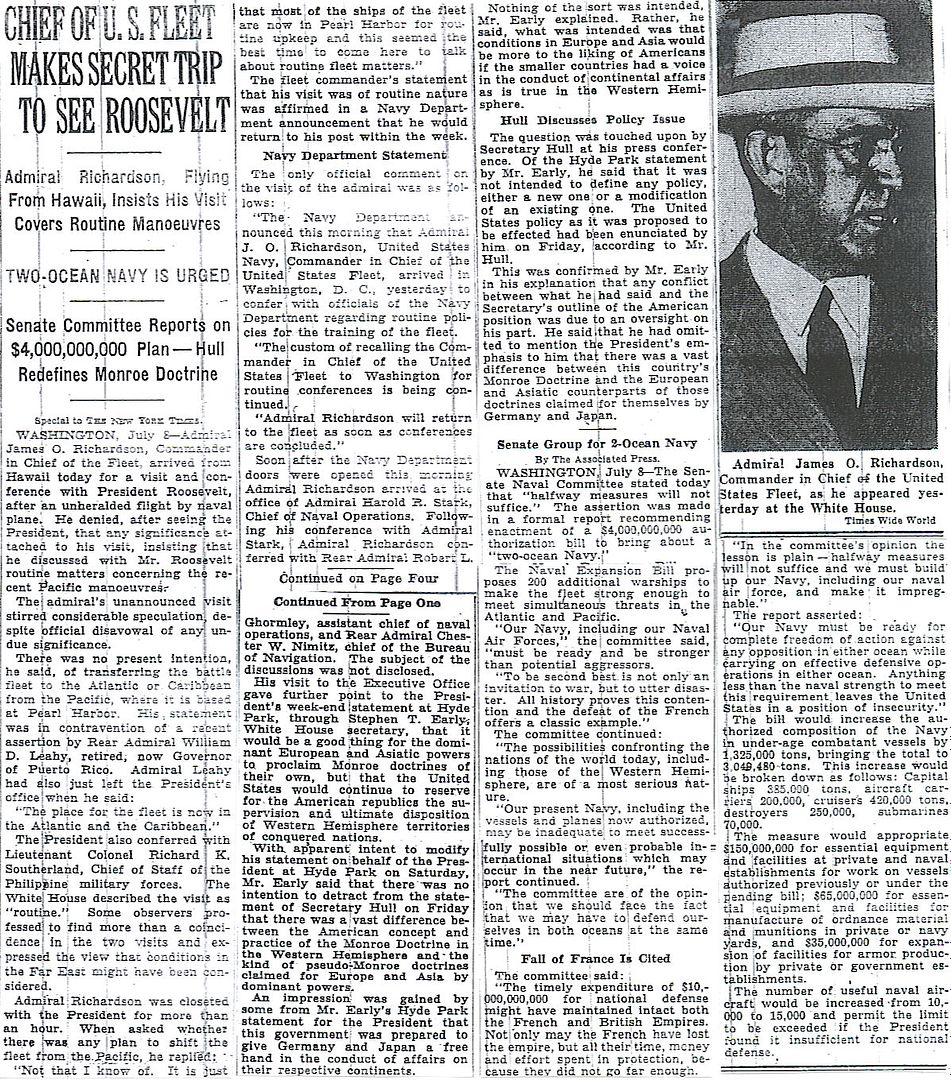
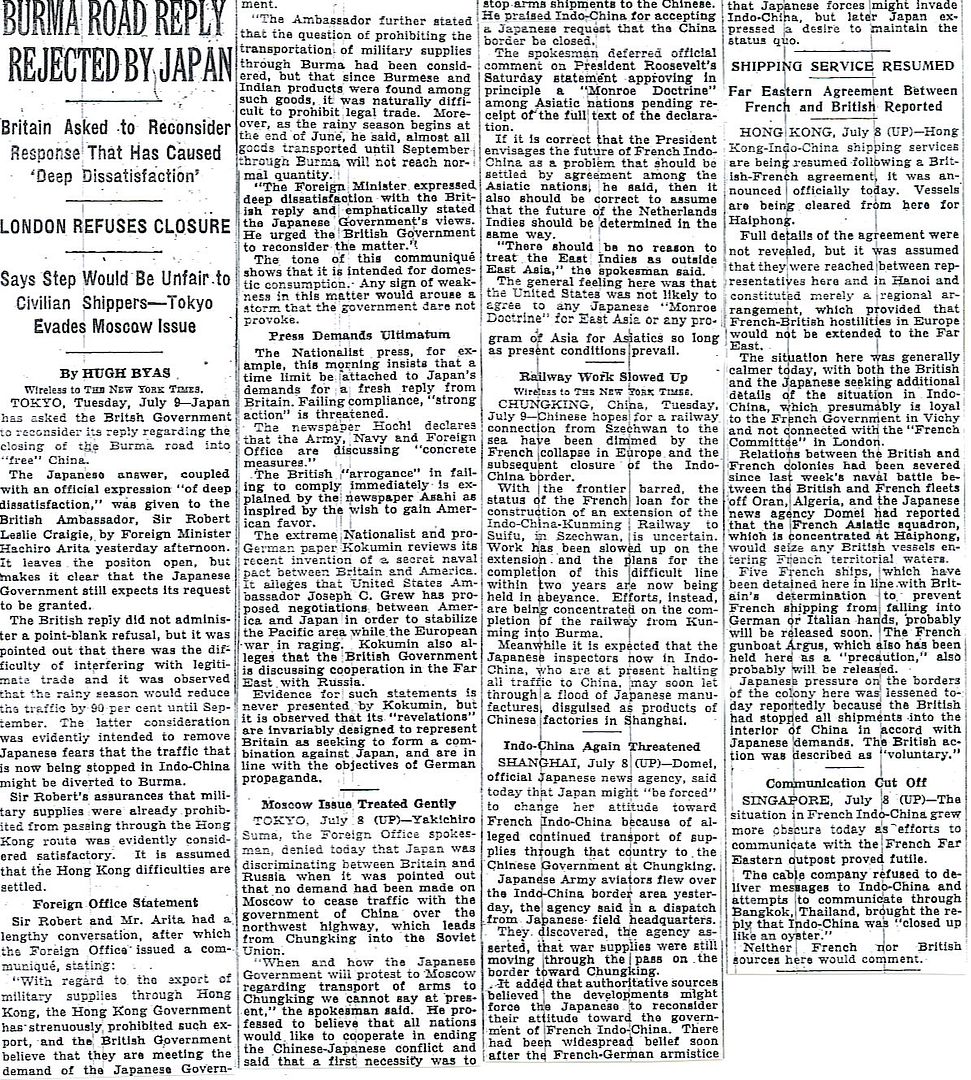
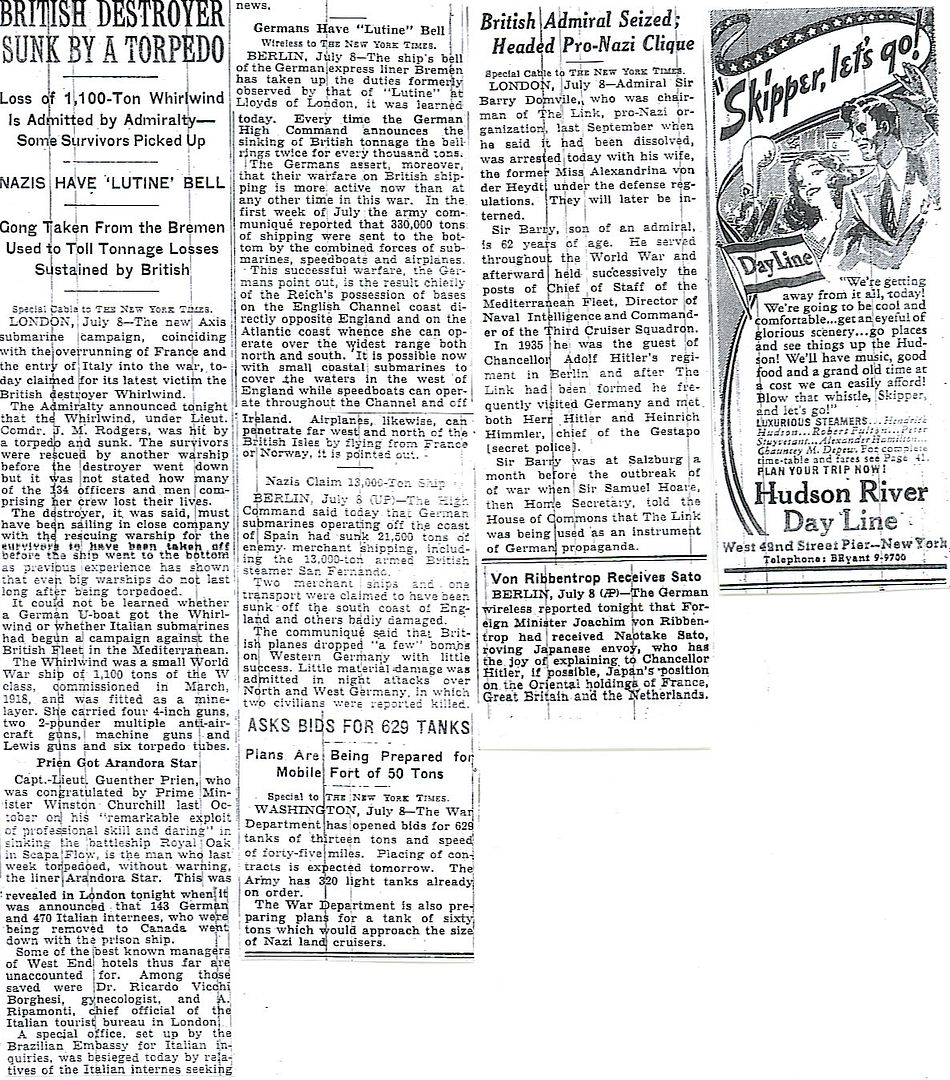
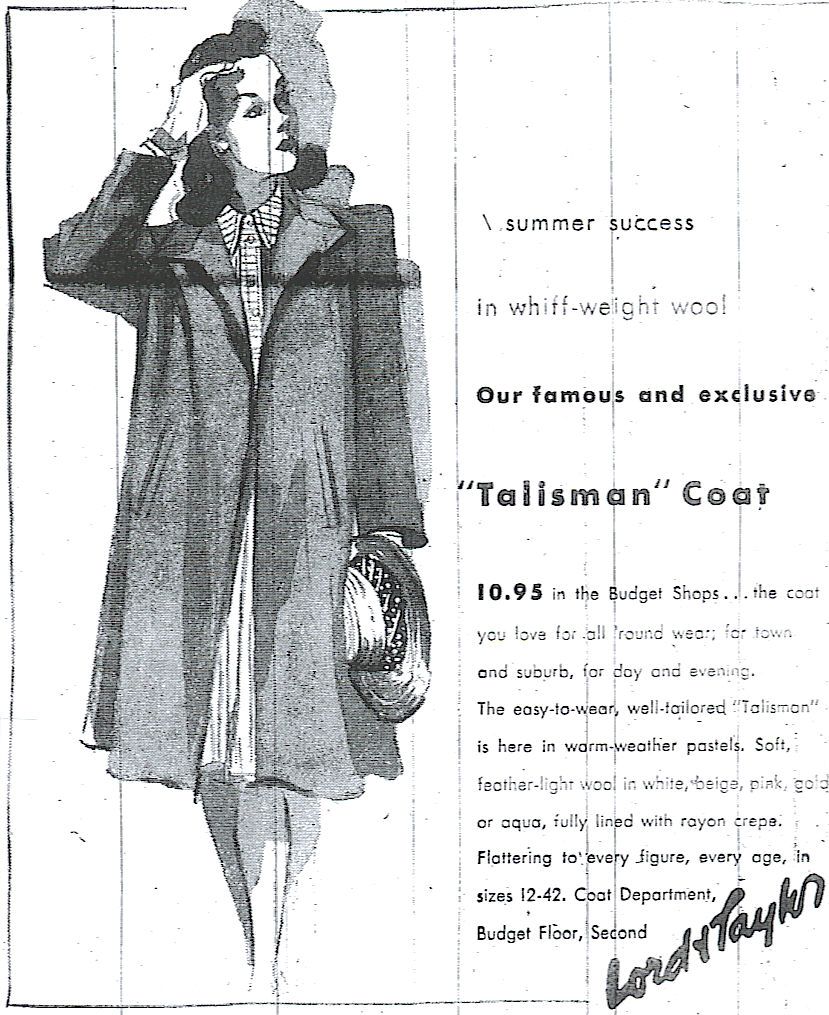
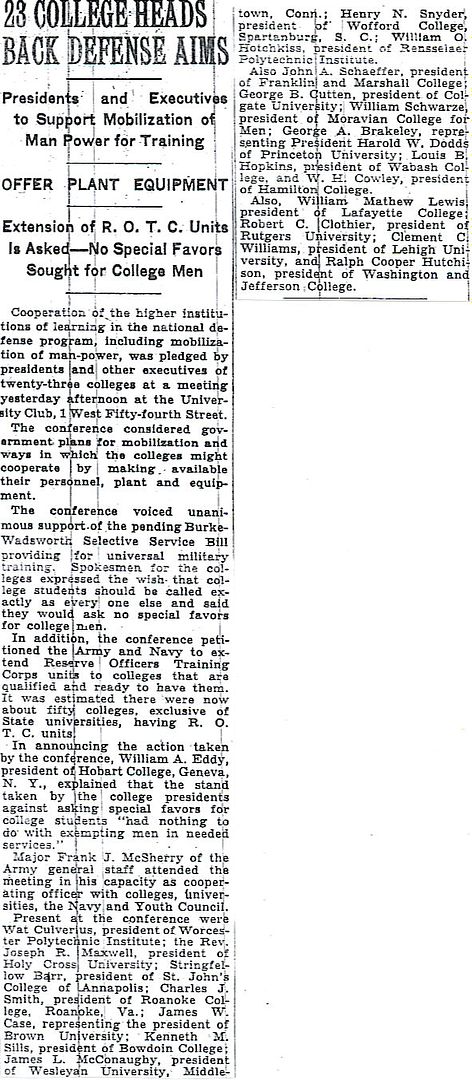
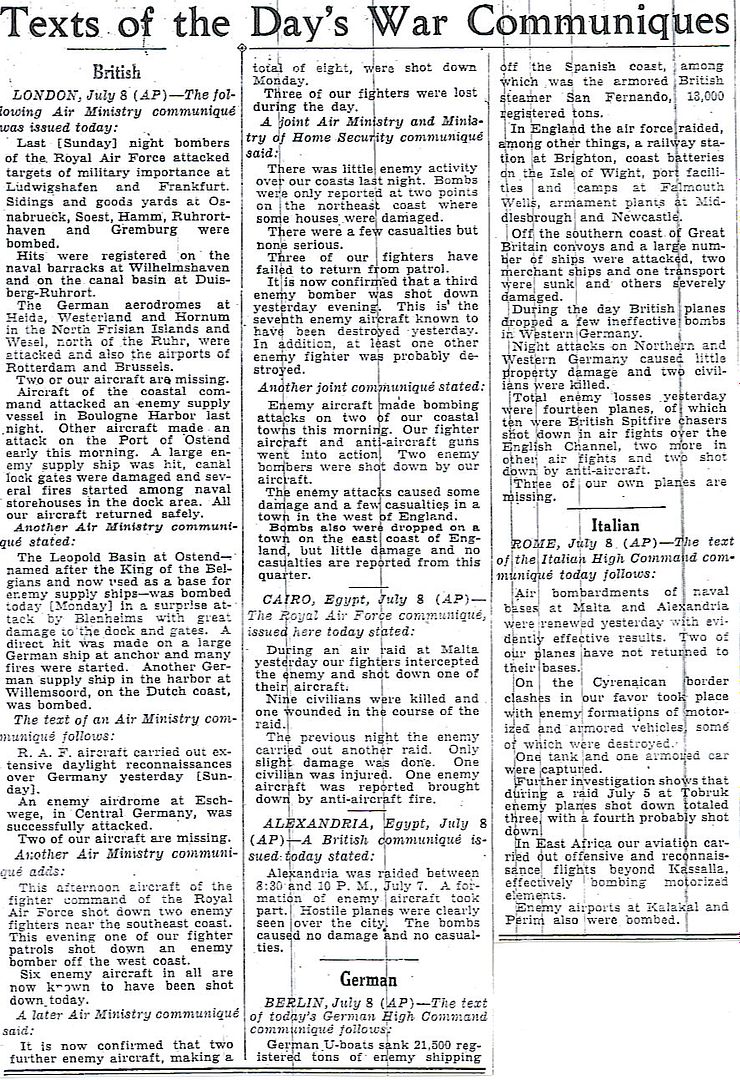
I don’t think anyone would dispute that FDR and Richardson didn’t see eye to eye. And I agree that it eventually led to Richardson’s dismissal.
I don’t think that would make the point that FDR felt the attack was going to come at Pearl Harbor though. Victor makes an interesting analysis in his writing when he assumes that the “mistake” could only mean Pearl Harbor.
FDR himself shows where his mind is when you look at the places named when he responds to Richardson’s question on if FDR meant to go to war with Japan. No, if they attacked the Dutch East Indies or Thailand. Yes, if they attacked the Philippines. FDR clearly shows that he is thinking much like the rest of the Navy that if the Japanese attacked that they would do so closer to their own home waters and strike south towards the resources of the South Pacific. The Philippines would happen to be in the way and it would be the potential American target along with Guam.
FDR is also clearly thinking about public reaction too. And attack on Guam for instance probably would not provoke the necessary outrage to declare war and as a result doesn’t appear to even be crossing his mind. The Philippines on the other hand would, especially with “America’s General” in the country.
I would think that if Pearl would have been on his radar that it would have likely had been included in answering this question, especially since the entire argument surrounded basing the fleet on the islands.
Victor says the “mistake” could only mean Pearl, but it also could mean the Philippines since it would also be a catalyst to get the U.S. into the war. It’s a bit of a leap by the author in my opinion.
I don’t doubt that FDR wanted a provocation to get us in the war. Had he not, he would have taken his own navy’s advice and eased up to give the the extra time they asked for to prepare forward bases. I just don’t see any evidence that he thought it would be Pearl Harbor as the target of Japanese aggression.
You may be missing the forest for all those pesky trees in the way... ;-)
Remember, the October 1940 meeting was now Richardson's second with Roosevelt, both times for the same reason -- Richardson doesn't like having the Pacific Fleet exposed and vulnerable at Pearl Harbor.
Richardson is disturbed and angry about it -- it's not safe, he tells FDR.
The fleet is too weak to do any good, it can't even protect itself against attack, unless kept on high-alert.
Oh, that's no problem, replies Roosevelt.
If the Japanese attack the Dutch East Indies or Thailand, we won't go to war with them.
If they attack the Philippines, we would "probably" / maybe go to war.
But, if they make a really serious "mistake" then we would certainly be at war, says FDR.
So I'd say that serious "mistake" can only mean Pearl Harbor.
After all, it's the whole focus of the discussion -- it's why Richardson is there in the first place.
FDR's strategy here is totally obvious.
He cannot, he will not, take the United States into war until or unless we have been seriously attacked.
And Hitler's U-boats sinking a few US ships in the Atlantic just won't do the job.
It has to be a serious attack on a major facility.
Well, which facility?
The Philippines was "probably" / maybe a serious enough target.
But the best Japanese target, to ensure US entry into war was the very one that Richardson had traveled all the way to Washington, DC, to discuss with his president.
Of course, in no possible way could FDR tell the Japanese where to attack.
But already, at this time in 1940, Roosevelt is thinking: where is the best place for an attack on the US to insure we will go to war.
And here was his Pearl Harbor commander, looking him in the eyes saying Pearl Harbor was too vulnerable and he couldn't be party to it.
So Richardson must obviously be replaced by someone less, well, understanding.
So, consider this question: is there any record of Richardson's replacement, Admiral Kimmel, having ever met with FDR to discuss such strategic matters?
Answer: no, Kimmel was a patsy, neither told nor expected to ask about grand strategy.
Next there's this issue about the meetings with Richardson and FDR. The supposition that Richardson concern was that the American fleet would get attacked paints a narrow picture of the entire argument. From Richardson's own testimony in the Joint Committee on the Investigation of the Pearl Harbor Attack conducted in 1946.
When asked about why he was against the fleet being at Pearl Harbor:
"My objections for remaining there were, primarily, that you only had one port, secure port, and very crowded, no recreation facilities for the men, a long distance from Pearl Harbor to the city of Honolulu, inadequate transportation inadequate airfields."A carrier cannot conduct all training for her planes from the carrier deck. In order to launch her planes she must be underway at substantial speed, using up large amounts of fuel. So that wherever carriers are training their squadrons there must be flying fields available, so that while the ship herself is undergoing overhaul, or repair, or upkeep, the planes may conduct training, flying from the flying fields
"There were inadequate and restricted areas for anchorages of the fleet; to take them in and out of Pearl Harbor wasted time.
"Another reason, which was a substantial one: Americans are perfectly willing to go anywhere, stay anywhere, do anything when there is a job to be done and they can see the reason for their being there, but to keep the fleet, during what the men considered normal peacetimes, away from the coast and away from their families, away from recreation, rendered it difficult to maintain a high state of morale that is essential to successful training.
"For those reasons, and because I believed that the fleet could be better prepared for war on a normal basis on the west coast, I wanted to return to the west coast."
Now concerning the October meeting itself:
Richardson did not like that the reason for basing the fleet at Pearl were for political and not military reasons. FDR in this meeting told him it was to serve as a deterrence to Japan in which Richardson did not think it would work:
"I stated that in my opinion the presence of the fleet in Hawaii might influence a civilian political government, but that Japan had a military government which knew that the fleet was undermanned, unprepared for war, and had no training or auxiliary ships without which it could not undertake active operations. Therefore, the presence of the Fleet in Hawaii could not exercise a restraining influence on Japanese action. I further stated we were more likely to make the Japanese feel that we meant business if a train were assembled and the fleet returned to the Pacific coast, the complements filled, the ships docked, and fully supplied with ammunition, provisions, stores, and fuel, and then stripped for war operations."
So it wasn't as much the fact that Richardson felt the fleet was unsafe at Pearl, though many commanders did broach the question, but it was more a point that it would not be able to prepare for war as well in this remote area as it could back on the West Coast. In a letter that Stark sent Richardson on November 22nd 1940, Stark asked Richardson about the safety of the fleet at Pearl from Japanese attack in which Richardson responded on the 28th in a note that said: "*This feature of the problem does not give me a great deal of concern and, I think, can be easily provided for.*"
In all of Richardson's testimony, never does he make the assertion that FDR felt the Japanese would strike Pearl Harbor and that FDR would let it happen. And those who fixate on the potential of attack as the sole source of the argument are really suffering from tunnel vision.
And it still doesn't offer any evidence that FDR knew Pearl Harbor would be attacked and just let it happen.
Somehow, I'm not getting the point across to you.
Certainly FDR did not "know" in July or October, 1940, that the Japanese would attack Pearl Harbor on December 7, 1941.
Even the Japanese themselves did not know that!
Yes, I acknowledge Richardson's concerns about the inadequacies of Pearl Harbor for the US Pacific Fleet.
But even your quotes show us, those were not his only concerns.
Victor devotes well over ten pages to the dispute between Richardson and Roosevelt -- plus many more to the effects of it on Admiral Kimmel & General Short. Of all that, I've quoted here less than a page.
My point so far has been that even in July and October, 1940, the Roosevelt administration is seriously considering just what it would take to bring America into the war.
A Japanese attack on Thailand or Dutch East Indies would not do it.
An attack on the Philippines would "probably" do it -- "probably" is Roosevelt's word, according to Richardson through Victor, not mine.
And of course, your judgment today on this is utterly irrelevant, as is mine.
The issue is: what did Roosevelt think was necessary to bring the US into the war?
Answer: "probably" the Philippines, which I take to mean "possibly not".
Therefore FDR speculated further about a Japanese "mistake" which would put America at war.
Could such a "mistake" include attacking Pearl Harbor? Let's consider your quote from Richardson in November 1940 -- this is after his second meeting with FDR, but before being officially fired.
Is Richardson concerned about the safety of Pearl Harbor?
"This feature of the problem does not give me a great deal of concern and, I think, can be easily provided for."
Taken by itself, it seems to say he's not concerned.
That's because it's only one "feature" of a larger problem.
If the overall problem is solved, then this "feature" is not of great concern.
But the larger problem was never solved, and after Richardson's firing got steadily worse.
And in the mean time, FDR began to think of ways to poke or prod the Japanese into some sort of "mistake."
You are right, your not. But that's because you're not supporting it with anything. That "mistake" could be the Philippines. It could be Guam, or Panama, or even Midway. Richardson once said with the way the Japanese conducted their attack it could have been successful in Puget Sound so why not there.
You're basing your argument on an author's interpretation of a single word coupled with your own bias to the fact. Otherwise you would say that "probably" means "probably" and not "possibly not". Nothing posted here supports the contention that FDR thought there would be an attack on Pearl Harbor and allowed it to happen.
There's no "would" about it in July 1940, only "could".
"Today," in July 1940, and again in October 1940 according to Victor, Roosevelt was confronted by his Pacific Fleet Commander, Admiral "Richardson, [who] urged returning the fleet the West Coast because of its vulnerability at Pearl Harbor."
Roosevelt did not deny the danger, but claimed the fleet was serving as "a restraining influence on Japanese actions."
Richardson said the fleet was too weak to be a deterrent, and the Japanese knew it.
He then asked if the President meant to go to war with Japan.
That, Roosevelt responded, depended on where the Japanese attacked.
So ask yourself: if there was no possibility of Japan attacking Pearl Harbor, then why did Richardson express his concern about Pearl Harbor's "vulnerability" to FDR?
Certainly, in July 1940, Roosevelt could not possibly have known an attack was coming on Pearl Harbor.
But, he was already considering Japan's possible "mistakes" in terms of whether they would "probably" or certainly bring America into the war.
By the way, the "allowed it to happen" part is not even debatable -- it was written, official US policy at the time.
On this subject, General MacArthur said:
"My instructions from Washington were not to initiate hostilities under any circumstances."
Stimson's November 27, 1941 dispatch to General Short said:
"the United States desires that Japan commit the first overt act."
Stimson later testified:
"The situation was admittedly delicate and critical...we needed the Japanese to commit the first overt act...that nothing would be done unless necessary to the defense...to precipitate an incident and give the Japanese an excuse for war...and say we had committed the first overt act."
So, allowing the Japanese to strike us first was the official, written US policy, understood and acknowledged by all.
Do you have a problem with that?
I've never said that. I'm saying that at no time did FDR have foreknowledge that Pearl Harbor, specifically, was going to be the target and intentionally withheld that information, allowing the fleet to be surprised; thus allowing him to declare war. There simply is no proof of that.
There was the potential of the Japanese attacking anywhere, including the west coast, that's why the war warning went to everyone and not just the South Pacific stations. When it was certain that an attack was coming the warning specifically mentions these southern stations, but it does tell everyone to be on the alert.
You are taking my statement out of context by word-smithing out the “allowed it to happen” from the rest of the statement. There’s not even a comma separating that part of the sentence with the rest of the statement which clearly states that “allowed it to happen” refers to FDR allowing Pearl Harbor to be attacked. And perhaps I should add to the sentence “allowed to be attacked even though he had foreknowledge and decided to let them be surprised” but in the context of the entire discussion I assumed that you would get that. If your going to rework my sentences to say something that they do not I would suggest next time deleting the word “Nothing”, this way you can just claim that I agree with you and save yourself some typing.
You're getting way ahead of our story.
I'm still way back in July 1940, discussion the disagreement between Richardson and Roosevelt.
I'm trying to make the point that there was a disagreement, that it involved the "vulnerability" of Pearl Harbor to Japanese attack, and -- at least according to Victor quoting Richardson -- Roosevelt seemed primarily concerned about such a vulnerability in terms of whether or not it would bring America into the war.
If it did, that would be the great "mistake" which FDR believed the Japanese could not -- at some point -- avoid making.
It's a very small point in a very large subject.
I make it now because we have the news of of July 1940 here in front of us.
And I've quoted that particular section of Victor's lengthy discussion of the Richardson-FDR dispute specifically because it mentions the one key word which unlocks all real understanding of December 7, 1941.
What is that one key word? Why "deterrence" of course.
Do you know, in military terms, when a "deterrence" is not a deterrence? When, in fact, does a supposed "deterrence" become a provocation?
When you know that, you know the key to Pearl Harbor -- and that is precisely the subject of disagreement between Richardson and President Roosevelt.
But "today" is still July 1940.
There are many months yet to review and discuss all this in great detail. ;-)
How much clearer could the official language get?
"the United States desires that Japan commit the first overt act."
How could "Japan commit the first overt act" if the US Navy & Army Air Corps planes were constantly out patrolling hundreds and hundreds of miles from their bases?
Under such conditions, Japanese would easily claim their fleet was only out for a peaceful Sunday picnic when it was suddenly pounced on by those evil Americans war planes?
But let me add another factor -- another "can't see the forest for the trees" element.
Did you ever notice how virtually every country invaded by the axis powers was seemingly "caught by surprise" -- most notably Stalin and Roosevelt, but many others as well including even France -- which had months to prepare. When the time came, they still weren't ready.
I think something else was at work here -- something so obvious that nobody wants to see it... ;-)
First we have to throw out the "mistake" statement since that did not take place in July, but at the October meeting.
Now since Victor uses the Joint Committee on the Investigation of the Pearl Harbor Attack (Victor references it as the PHA after initial citation so I'll do the same) as his primary resource for the items on page 158-159 I took the liberty of finding the transcripts to those hearings and read them. I also tracked down and read the transcripts from the Naval Court of Inquiry (I'll call this the NCI from here) that is often referenced in the PHA. Interesting stuff by the way.
Now I don't argue that FDR and Richardson disagreed on the disposition of the fleet and it led to Richardson being relieved. I never have contested that either so it's not much of a point. I do take issue with the "vulnerability" quote by Victor, but in some respects its only semantically so I'll hit that first.
In the PHA which Victor sources, Richardson never makes the claim that the fleet is vulnerable. That distinction goes to Admiral Kimmel who said in his NCI testimony that is often referenced in the PHA. In his testimony, Kimmel says when asked if he also suggested moving the fleet out of Pearl as his predecessor had, "I did not make any protest, any formal protest, against maintaining the fleet at Pearl Harbor at any time. I did, in conversation with the Chief of Naval Operations, in June of 1941, point out to him the vulnerability of Pearl Harbor as a fleet base".
Now the reason I don't discount a concern of vulnerability by Richardson out of hand entirely are two fold. First, as a commander of a fleet I would imagine you worry about the vulnerabilities of your fleet no matter where it is. Second, again in the NCI I found this in which he doesn't claim that the fleet is vulnerable, but does show that he sees the potential for danger.
Q. In other words, you considered that the means of attack would be by submarines rather than by air?A. Yes, although in a statement, in a letter prepared which is before the court, presenting the inadequacies of the defenses of Pearl Harbor, I did point out and particularly stress the inadequacies with respect to anti-aircraft defense, and we did consider at one time the advisability of establishing a balloon barrage, abandoning the idea, so that we were not entirely without concern over the possibilities of a surprise air attack.
So as a reasonable commander he was looking at all angles, but as you can see, his primary concern from a defensive standpoint was with submarine attacks, and not a strike from the air. I guess I should solidify that statement by posting the answer to the previous question that led to this one I just listed above.
Q. At this time and in view of these rumors of a possible war with Japan, what was your estimate as to a surprise attack on Hawaii? Did you believe that the Japanese would make a surprise attack, and if so, how?A. While I was Commander-in-Chief of the Fleet I was primarily concerned with the possibility of an attack by submarines.
So did Richardson claim that the fleet was vulnerable in his July 1940 meeting with FDR? Maybe, but if he did, it wasn't his primary concern. If it was it would have shown up in his testimony, especially when you look at what he did claim his issues were in that July meeting.
According to the PHA, this is the reasons he gives:
"My objections for remaining there were, primarily, that you only had one port, secure port, and very crowded, no recreation facilities for the men, a long distance from Pearl Harbor to the city of Honolulu, inadequate transportation inadequate airfields.""A carrier cannot conduct all training for her planes from the carrier deck. In order to launch her planes she must be underway at substantial speed, using up large amounts of fuel. So that wherever carriers are training their squadrons there must be flying fields available, so that while the ship herself is undergoing overhaul, or repair, or upkeep, the planes may conduct training, flying from the flying fields"
"There were inadequate and restricted areas for anchorages of the fleet; to take them in and out of Pearl Harbor wasted time."
"Another reason, which was a substantial one: Americans are perfectly willing to go anywhere, stay anywhere, do anything when there is a job to be done and they can see the reason for their being there, but to keep the fleet, during what the men considered normal peacetimes, away from the coast and away from their families, away from recreation, rendered it difficult to maintain a high state of morale that is essential to successful training.
"For those reasons, and because I believed that the fleet could be better prepared for war on a normal basis on the west coast, I wanted to return to the west coast."
This mirrors the testimony he gave the NCI:
Q. Admiral, during the time you were in the Hawaiian area, and the Commander-in-Chief of the United States Fleet, did you consider the basing of the United States Fleet in the Pacific, and did you make any specific recommendations to the Navy Department as to the proper base in the Pacific, at which in your opinion the Fleet should be placed?A. I made such representations both unofficially, orally, and in writing, and I happen to have one.
Q. What were they, please? What were the recommendations?
A. Well, I have one in my pocket, if you want it.
Q. Briefly, just generally — just state it, if you please?
A. Well, I stated that the operating areas were not adequate, either for surface ships or air ; there were no airfields adequate to care for the planes that were on carriers, and could not be trained from the carriers because of the shortage of fuel. The only safe anchorage was Pearl Harbor, and it was entirely inadequate to handle the Fleet ; the distance from the West Coast increased the cost and the delay and the difficulty of maintaining and supplying the Fleet; that there were no recreational facilities; that in time of peace the men and officers could not see any reason for remaining for such a long time away from home ; that they were two thousand miles nearer a possible enemy; that we were unprepared to undertake offensive operations from Pearl Harbor, and that if we were involved in war, it would be necessary for us to return to the West Coast for stripping and mobilization and preparation for war; and that our presence in the Hawaiian area, when we were absolutely not trained, couldn't make any military people believe that we were planning offensive operations.
Q. Where did you recommend that the Fleet be based ?
A. Normal West Coast bases, except a detachment to remain in Pearl Harbor that could be adequately cared for by the facilities there.
So his main concern was that Pearl Harbor didn't have the facilities to support the fleet and the remote station would be more expensive and harder on the men. All reasonable concerns honestly, especially when you consider that if you cannot train adequately, and don't have the material resources to ramp up from peace to war status without cycling the ships back to the mainland, then you wont be in a position to take advantage of that forward position for offensive operations if war does break out.
Admiral Stark's testimony backs up Richardson's as far as his concerns when it comes to the fleet's stationing at Pearl Harbor (again from the NCI):
Q. At some time during the late summer or fall of 1940, did Admiral Richardson make either one or two official visits to Washington?A. He did.
Q. And during one or both of those visits, did you have conversations with him relative to continuing the Pacific Fleet at Pearl Harbor?
A. That question was undoubtedly one which we talked about.
Q. And do you recall that Admiral Richardson protested with strength and vigor the continued maintenance of the Pacific Fleet at Pearl Harbor under the then existing conditions ?
A. I recall his desire to bring the Fleet back to the Coast.
Q. Did he advance any reasons to you for that desire?
A. Yes, he supported them with reasons.
Q. Do you recall what the reasons were, as stated to you?
The witness requested permission to refresh his memory from documents he had in his possession.
The court granted the permission.
A. I can give you some of the reasons.
Q. Can you state generally your present recollection?
A. I recall one reason which Admiral Richardson gave which was in connection with morale, namely, that the fleet on the Pacific Coast would have better opportunity for recreation, visits with their families. I am not sure, but as I recall the question of re-enlistments was brought up in that same connection, but as to any material reason which he might have given, I do not recall specifically at the moment.
Q. Do you recall whether Admiral Richardson based his protest on the fact that he considered the Fleet was not secure at Pearl Harbor ?
A. I do not recall that, no, nor any official communication to that effect.
Q. Do you recall whether one of the factors behind Admiral Richardson's protest was that strategically and logistically, war operations could not be conducted, either actually or in training, from Pearl Harbor because of inadequate train then attached to the Fleet?
A. I remember a discussion of inadequate training came up and we were endeavoring to meet the needs of the Fleet to make Pearl Harbor suitable for some of these purposes, if not all of them.
So once again, we have Richardson's concerns with moral, facilities, and training, but noting on the fleet being vulnerable. In fact, Stark states that there were no mention of the fleet not being secure made to him by Richardson either officially or unofficially. So Richardson does not convey a concern about the security of the fleet at Pearl Harbor to his superior, or in official communiques at the time, or unofficially, or in his testimony in 1944 (NCI) and 1945 (PHA). But Victor's interpretation of the PHA testimony is that Richardson did make the argument with FDR that the fleet was vulnerable at Pearl Harbor, and apparently all the other reasons that are in the PHA were not an issue that came up in these meetings of July or October. Interesting assessment.
So at this point in time, I would be willing to say that Richardson and FDR are on the outs because Richardson wants to move the fleet back to the coast where it can better train and prepare for war while FDR wants to leave it at Pearl to exert political pressure on Japan.
Another great post -- lots of meat and potatoes in it, thanks!
And yes, for purposes of this discussion I've conflated the July and October meetings -- because they seem directly connected and demonstrate that Richardson's concerns about Pearl Harbor, far from being alleviated by Roosevelt's actions, only grew more intense over time.
And what were those concerns?
Oh, says his boss, Admiral Stark, Richardson was worried about the lack of training and maintenance facilities at Pearl Harbor.
Anything else?
Naw, that was about it, says Stark.
Of course, anyone of the "Roosevelt knew" school has to believe Stark was a major figure in the Pearl Harbor cover-up, so any such testimony must be viewed with suspicion.
So, what did Richardson himself say?
Yes, he was concerned about the lack of facilities at Pearl Harbor, but he also had higher strategic concerns, including, in effect, its "vulnerability" to attack.
What kind of attack?
Well mainly he was concerned about submarines, but also air attack.
And there are documents to support his concern, says Richardson.
And not only Richardson was concerned, but his successor, Admiral Kimmel was also concerned about Pearl Harbor's "vulnerability."
So, why is this word "vulnerability" or the phrase "inadequacies of defense" important strategically?
Because, militarily speaking, "vulnerability" is what turns a "deterrence" into a provocation.
Militarily, a deterrence is a force so powerful it says to any potential enemy: "don't mess with me, or you will be so, soooo sorry."
By contrast, a provocation is a force so weak it says to a potential enemy: "here I am, attack me to gain victory and glory."
In their October meeting, Roosevelt claims the fleet at Pearl Harbor is a deterrent to the Japanese.
Richardson answers -- no, it's too weak to deter, and the Japanese know that.
What is a force too weak to deter?
It's a provocation.
Roosevelt knows that, and considers the possibility of a Japanese attack as the great "mistake" which will bring American into the war.
Just keeping things in line with the format you requested so we would not get "way ahead of our story".
Of course, anyone of the "Roosevelt knew" school has to believe Stark was a major figure in the Pearl Harbor cover-up, so any such testimony must be viewed with suspicion.
Then I think they better come forward with some real evidence to that effect then. What I've seen here so far is just a case of poor utilization of source material and word-smithing to try and read more into a word or statement than is necessarily really there. Unsubstantiated accusations and playing the "depends on what the definition of IS, IS" isn't going to win me over.
I'm afraid these revisionists need to come up with something a little more convincing to woo me over to their side, and I'm more than willing to go over their information, but when I find issues like I did with Victor's work and use of his sources it really makes me suspect his motivations.
There is a lot more to the testimony of these men that I didn't add to this because it didn't fit the time line or I felt was just making my post too long anyway. I'm happy with my analysis based on my own research into the primary source material and I will stand by it for that reason.
The evidence you posted is as clear and real as any evidence could be: both Richardson and his successor, Kimmel, were concerned about Pearl Harbor's "vulnerability" and "inadequacies of defense."
That is not "word-smithing" on my part, those are facts which you posted.
I have further posted Victor's report on Richardson's argument with President Roosevelt, wherein Richardson complains about the weakness of the US Pacific Fleet at Pearl Harbor, to which FDR responds: a Japanese attack would be the big "mistake" which brings America into the war.
No "word-smithing" there, just facts.
In 1940, Roosevelt was less interested in the potential destruction of the US fleet than in the result of US entry to war.
Of course, as time goes on, there will be other important points to make, but as of "today" -- July 1940 -- this seems to me enough for us to remember and ponder...
Richardson's primary concern was that there were improper facilities to put the fleet on a war footing. Any issues with Pearl's defenses were secondary and that shows when you read his testimony to both the NCI and PHA.
CougarGA7: "Trying to make the word 'deterrence' mean 'provocation'... "
You didn't "get it," did you?
Deterrence and provocation, militarily speaking, are opposites.
A deterrence is a powerful military force, powerful enough to discourage enemy attack.
A provocation is a weak military force, so weak it invites - provokes enemy attack.
In their October 1940 argument, Roosevelt tells Richardson his fleet is kept at Pearl Harbor as a deterrent against the Japanese.
Richardson responds: it cannot be a deterrent because it's too weak, and the Japanese know it. Militarily, that makes it a provocation.
So Roosevelt responds: if the Japanese attack, that will be the "mistake" which puts America at war.
This is not "word-smithing," it's defining our terms, accurately.
CougarGA7: "saying 'probably' means 'possibly not'. "
Certainly it does! Over the long run you will "probably" make money by investing in the stock market -- but "possibly not."
What else can "probably" possibly mean? ;-)
CougarGA7: "Attributing 'vulnerability' to Richardson despite the fact that he never said that in his testimony. "
Go back and read your own post #32:
Richardson answers about possible means of attack: "Yes, although in a statement, in a letter prepared which is before the court, presenting the inadequacies of the defenses of Pearl Harbor, I did point out and particularly stress the inadequacies with respect to anti-aircraft defense, and we did consider at one time the advisability of establishing a balloon barrage, abandoning the idea, so that we were not entirely without concern over the possibilities of a surprise air attack."
So now, Mr. Word-Smither, in exactly which sense is the word "vulnerability" not synonymous with "inadequacies of the defense"?
CougarGA7: "Not to mention taking only a portion of a sentence I wrote in order to make it mean something different from its meaning when taken wholly and in its proper context is word-smithing."
Say what?
CougarGA7: "Richardson's primary concern was that there were improper facilities to put the fleet on a war footing.
Any issues with Pearl's defenses were secondary and that shows when you read his testimony to both the NCI and PHA."
Of course that is true, but saying Richardson's concerns about Pearl Harbor's vulnerability were "secondary" does not mean they were "non-existent."
It only means that Richardson, correctly, did not believe in 1940 a Japanese attack was imminent.
Therefore, his immediate concern was Pearl Harbor's facilities.
Clearly you need to go back and read what you have written on this thread. I clearly told you when you took my own statement out of context. You are taking this far too personally and I think you are getting tunnel vision as a result.
I did not understand your complaint then, and still don't.
But I note you have accused me of "word-smithing" and now "tunnel vision," along with "taking this far too personally."
I would again ask you to go back an read what you wrote then. I told you then that you were taking my statement out of context. It’s all right there, and my reasons have all been clearly presented. It’s not a complaint, it is an observation which unfortunately I think takes away from your argument as a whole.
I am glad you noticed that I stated that I think you are taking this too personally since you seem, in my opinion, to be getting far too spun up over this. I do believe that it is affecting your objectivity. You may take that for what it is, it is only my personal observation on how you have approached this debate.
I am still happy with my conclusions based on my own analysis of primary sources. I don’t think I’m out of line stating that Richardson’s concerns about Pearls defenses were very low on his list compared to his main objections. I think his stated objections that he made to Stark, and at his testimonies makes sense. Pearl Harbor did not have the proper facilities to train for war. It did not have the equipment to put the fleet on a war footing. It’s remoteness could have a negative impact on moral and Hawaii had only “one secure port”, meaning that there were no secured secondary facilities. It would make the West Coast very much preferable if you were the commander of that fleet. I think that the argument that Richardson’s argument with FDR was based only on the defenses at the facility is highly unlikely, and very biased when presented as a primary issue. All the evidence says otherwise. I am more than willing to look at proof that the “vulnerability” was his big issue, but as of yet I have not been presented with anything that suggests that.
Disclaimer: Opinions posted on Free Republic are those of the individual posters and do not necessarily represent the opinion of Free Republic or its management. All materials posted herein are protected by copyright law and the exemption for fair use of copyrighted works.